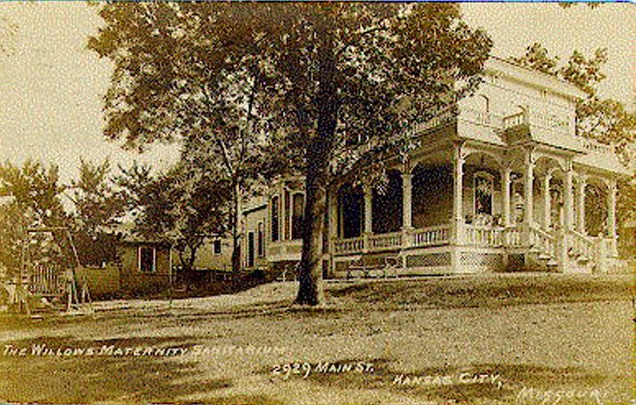Where are the Records for the Willows Maternity Home?
**Please note that MVSC does not have any records from any of the Kansas City maternity homes, nor are we aware of where any surviving records may be located. Read on for further details.**
The Willows Maternity Sanitarium closed in 1969, marking the end of 64 years of providing a haven and help for "unfortunate" girls and adoption services for their newborns. There is a long-standing rumour that, after it closed, the records of The Willows "were piled in the backyard and burned." Where this story originated is unknown, but it was published in The Kansas City Star on June 22, 1975 and again in 1982 in Mrs.Sam Ray's column, "Postcards from Old Kansas City." However, according to KelLee Parr, author of Mansion on a Hill: The Story of The Willows Maternity Sanitarium and the Adoption Hub of America, patient records were originally offered to the Jackson County Court. When the court refused to accept them, the records were taken to the Federal Reserve where they were destroyed (pg. 113).

Its central location in the United States with easy access by railroad contributed to Kansas City becoming "the baby hub of the United States." The back page of a Willows pamphlet called Interesting Willows' Statistics (1921) features a map of railroad lines across the United States all leading into Kansas City. The caption reads, "A glance at a railroad map of the United States will show the splendid position of Kansas City for the care of unfortunate young women. Its easy access from all directions, excellent train service and central location gives it the pre-eminent position in the country for its work."
At the Willows alone, it is estimated that, over its 64-year existence, 25,000 to 35,000 babies were adopted, lending credence to the observation in 1991 by Kate Burke, president of the American Adoption Congress in Washington, that indeed, Kansas City was "the baby hub of the United States."
A small collection of items pertaining to the Willows, saved by former nurse Florence Beal Bolte, was donated to Missouri Valley Special Collections at the end of 2016. The finding aid for the collection is available online.


